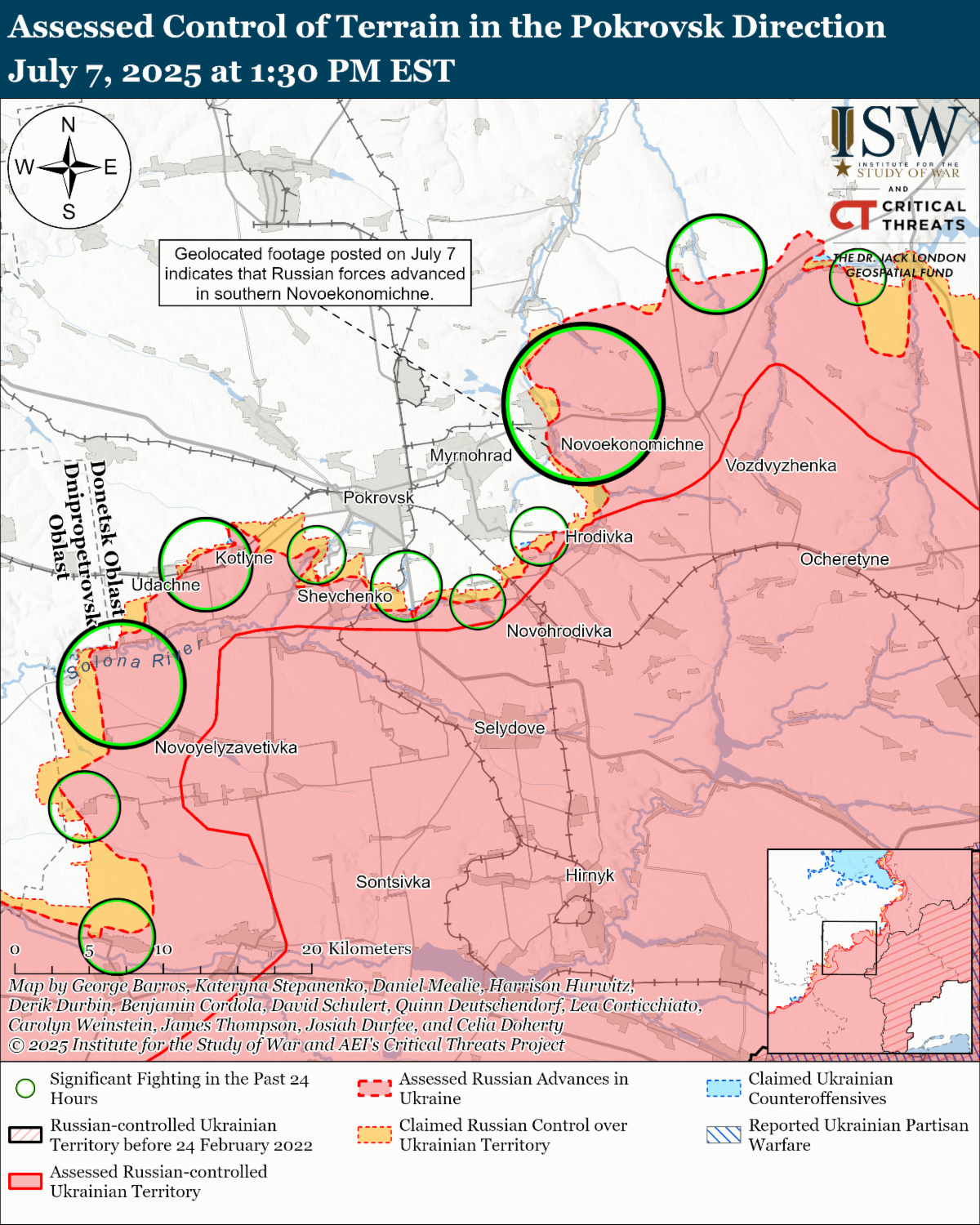Russian Foreign Minister Sergei Lavrov reiterated the Kremlin's rejection of a ceasefire and unchanged demands, including demilitarization and regime change in Ukraine. Lavrov gave an interview to Hungarian outlet Magyar Nemzet published on July 7 and claimed that a settlement to the war must eliminate the "root causes" of the war, which Lavrov again defined as NATO's expansion and Ukraine's alleged discrimination against Russian-speakers. Lavrov claimed that Russia is against a ceasefire as Ukraine and its allies would use the pause to regroup and reconstitute Ukraine's military. Lavrov explicitly highlighted Russia's demands for Ukraine's demilitarization and "denazification" (a phrase Russia uses to demand regime change in Ukraine), and these demands are notably Russia's original war goals. Lavrov also demanded international recognition of Russia's illegal annexation of Luhansk, Donetsk, Zaporizhia, and Kherson oblasts and Crimea – including the areas of these four oblasts that Russian forces do not currently occupy – and called for a future settlement to include sanctions relief and the return of frozen Russian assets. ISW continues to assess that the Kremlin remains uninterested in good-faith peace negotiations and any settlement to the war that does not acquiesce to its demands.
Key Takeaways:
- Russian Foreign Minister Sergei Lavrov reiterated the Kremlin's rejection of a ceasefire and unchanged demands, including demilitarization and regime change in Ukraine.
- Russia is leveraging its "Rubikon" Center for Advanced Unmanned Technologies to improve its theater-wide drone capabilities, including in priority frontline areas in Donetsk Oblast.
- Russian forces have yet to reach parity with Ukraine's innovative and deeply integrated drone program, however.
- Russian forces appear to be reprioritizing offensive operations in the Pokrovsk direction over the Kostyantynivka direction after several weeks of unsuccessful activity aimed at advancing toward Kostyantynivka.
- Russian Minister of Transport and former Kursk Oblast Governor Roman Starovoit reportedly recently committed suicide after Russian President Vladimir Putin removed Starovoit from his position, likely due in part to the Ministry of Transport's role in Russian failures that enabled Ukraine's Operation Spider Web in June 2025.
- Putin may have planned to punish Starovoit by arresting him on charges related to his time as the governor of Kursk Oblast in order to avoid acknowledging the Kremlin's failure to prevent Operation Spider Web.
- Ukrainian forces continue to conduct long-range strikes against Russia's defense industrial base (DIB).
- Ukrainian forces recently advanced near Novopavlivka. Russian forces recently advanced in northern Sumy Oblast and near Toretsk, Pokrovsk, and Novopavlivka.
| 




 [국방부] 추서 예우 강화, 추서 진급된 계급 따라 유족급여 올린다
[국방부] 추서 예우 강화, 추서 진급된 계급 따라 유족급여 올린다
 [ISW] 이란 업데이트, 2025년 7월 7일
[ISW] 이란 업데이트, 2025년 7월 7일